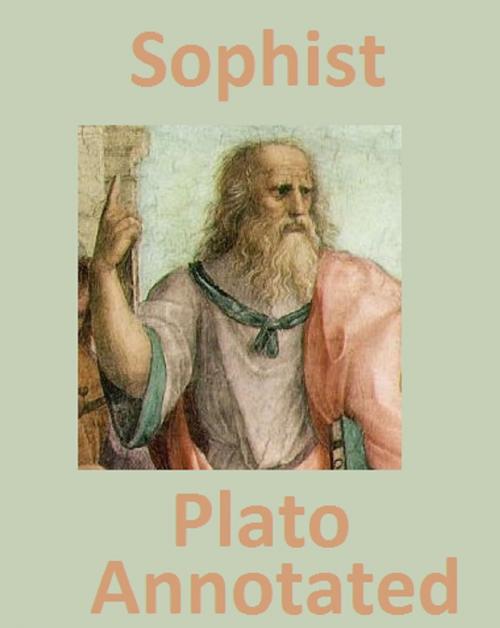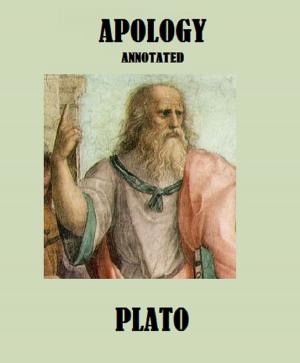| Author: | Plato | ISBN: | 1230000497107 |
| Publisher: | Bronson Tweed Publishing | Publication: | June 17, 2015 |
| Imprint: | Language: | English |
| Author: | Plato |
| ISBN: | 1230000497107 |
| Publisher: | Bronson Tweed Publishing |
| Publication: | June 17, 2015 |
| Imprint: | |
| Language: | English |
A sophist or sophister was a specific type of teacher in both Ancient Greece and in the Roman Empire. Many sophists specialized in using the tools of philosophy and rhetoric, though other sophists taught subjects such as music, athletics, and mathematics. In general, they claimed to teach arete ("excellence" or "virtue," applied to various subject areas), predominantly to young statesmen and nobility. There are not many writings from and about the first sophists. The early sophists' practice of charging money for education and providing wisdom only to those who could pay, resulted in the condemnations made by Plato through Socrates in his Dialogues, as well as by Xenophon in Memorabilia and Aristotle. Author of The History and Theory of Rhetoric: An Introduction James A. Herrick wrote, “In De Oratore, Cicero blames Plato for separating wisdom and eloquence in the philosopher’s famous attack on the Sophists in Gorgias.” The classical tradition of rhetoric and composition refers more to philosophers like Aristotle, Cicero, and Quintilian than to the sophists. Despite these criticisms, however, many sophists flourished in later periods, especially during the era of Roman history known as the Second Sophistic.
This edition has formatted for your reader, with an active table of contents. It has also been extensively annotated, with additional information about Laws and also Plato, including an overview, etymology, examples of sophists, influence, and biographical information.
A sophist or sophister was a specific type of teacher in both Ancient Greece and in the Roman Empire. Many sophists specialized in using the tools of philosophy and rhetoric, though other sophists taught subjects such as music, athletics, and mathematics. In general, they claimed to teach arete ("excellence" or "virtue," applied to various subject areas), predominantly to young statesmen and nobility. There are not many writings from and about the first sophists. The early sophists' practice of charging money for education and providing wisdom only to those who could pay, resulted in the condemnations made by Plato through Socrates in his Dialogues, as well as by Xenophon in Memorabilia and Aristotle. Author of The History and Theory of Rhetoric: An Introduction James A. Herrick wrote, “In De Oratore, Cicero blames Plato for separating wisdom and eloquence in the philosopher’s famous attack on the Sophists in Gorgias.” The classical tradition of rhetoric and composition refers more to philosophers like Aristotle, Cicero, and Quintilian than to the sophists. Despite these criticisms, however, many sophists flourished in later periods, especially during the era of Roman history known as the Second Sophistic.
This edition has formatted for your reader, with an active table of contents. It has also been extensively annotated, with additional information about Laws and also Plato, including an overview, etymology, examples of sophists, influence, and biographical information.

![Cover of the book Love and Freindship [sic] (Annotated) by Plato](https://www.kuoky.com/images/2015/september/300x300/1230000651271-2Kai_300x.jpg)













